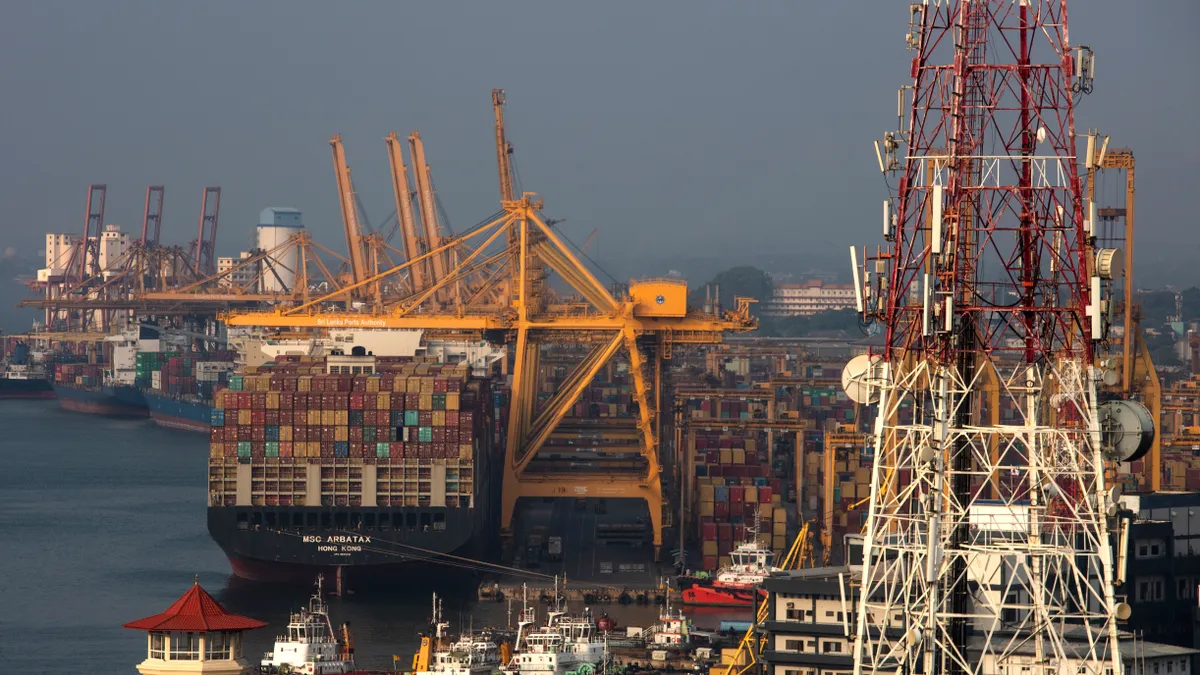UPDATE: Feb. 10, 2022: The Federal Maritime Commission on Friday announced it was mulling whether to subject ocean carriers and marine terminal operators to additional regulations on detention and demurrage.
The FMC is considering a wide array of regulations on the topic, and is asking supply chain stakeholders to submit comments to the agency on 16 questions, including:
- What type of information should be required on billings?
- How long from the point of dismissal of a charge does it typically take to receive
a refund? - What percentage of demurrage and detention bills contain inaccurate information,
and which information is most often disputed?
The advanced notice of proposed rulemaking is one of several initiatives that resulted from Fact Finding 29. The agency also sent a letter in October 2021 urging carriers to adopt a set of best practices.
Dive Brief:
- The Federal Maritime Commission voted on Wednesday to move forward with two initiatives related to demurrage and detention, according to a press release.
- The first initiative aims to provide guidance on complaint proceedings and protection against carrier retaliation. The second initiative will issue an Advance Notice of Proposed Rulemaking, which will seek public comment on how carriers should divulge information and practices on detention and demurrage.
- This is the latest action from the FMC to address issues in the ocean shipping industry, as the pandemic brought forward a series of complaints. The initiatives are part of Fact Finding 29, which was established in March 2020 to identify solutions to COVID-19 related challenges.
Dive Insight:
Shippers are dealing with high freight costs related to detention and demurrage.
The average charge per container for detention and demurrage fee is $200 or more for 80% of the respondents to a survey by the Harbor Trucking Association and TradeLanes.
The fees are one of many costs companies are dealing with related to ongoing congestion at ports.
"Some stakeholders complained that increasingly demurrage and detention charges are not administered in a manner that incentivizes freight fluidity," FMC Commissioner Rebecca Dye said in an executive summary of Fact Finding 29, which was provided to lawmakers in June 2021. As a result, the practices warranted "additional scrutiny, especially given the rapid rise of trade volumes."
The vote on Wednesday to provide guidelines and seek public comment is the latest step the FMC has taken to provide oversight over detention and demurrage practices.
The FMC looks into detention and demurrage charges
-
April 29, 2020
FMC detention, demurrage guidance comes as coronavirus outbreak aggravates preexisting port problems
-
February 11, 2021
FMC to discuss 'big, huge step' related to detention, demurrage and container returns
-
February 18, 2021
-
June 16, 2021
FMC commissioners back audits of ocean carrier detention and demurrage
-
July 21, 2021
FMC to audit top 9 carriers as part of permanent program to oversee detention, demurrage
-
August 5, 2021
FMC seeks details on congestion surcharge practices from 8 ocean carriers
In a statement, Commissioner Carl W. Bentzel said, "Carriers and marine terminal operators should not be charging demurrage or detention caused as a result of their own operational challenges, but on the other hand, shippers also need to pick up cargo left on-dock on a timely basis."














